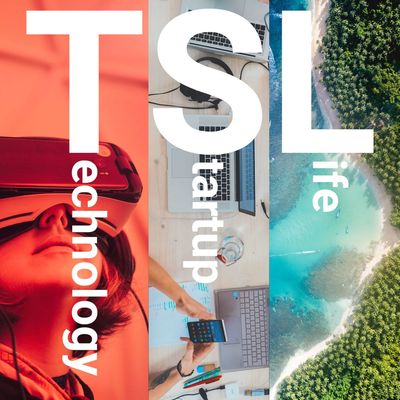Christoph und Florian sind tagsüber seit vielen Jahren Unternehmensberater und in Vollzeit Nerds. Jedes Mal wenn sie sich unterhalten, lernen sie was Neues voneinander - und haben eine Menge Spaß. Eigentlich zu gut, um es anderen vorzuenthalten! So ist TSL entstanden. "Technology, Startup & Life" ist ein buntes Spektrum, in dem sich die beiden mit jeder Folge zu einem Thema austoben.
https://www.tsl.fm
Folge #0010: Quantencomputer
Wir feiern das erste kleine Jubiläum - die zehnte Folge! - Mit einem echten Innvationsthema. Es geht um Quantencomputer!
Wir gehen mit euch an den Rand der Prozessortechnologie und an den Rand unseres Wissens, um einen Blick in die Zukunft zu werfen.
- Los geht es mit einem kurzen Abholer wie Chips heute funktionieren
- dann startet die wilde Reise von Albert Einstein zu Konrad Zuse, von Gigahertz zu Qubits.
- Nach ganz viel Facts gehts auch darum, wer wohl die ersten Quantencomputer haben wird... und was wir normale Menschen eigentlich damit machen, dass es jetzt Quantencomputer gibt.
Links:
- Mooresches Gesetz – Wikipedia
- Apple's A12 Bionic is the first 7-nanometer smartphone chip — Apple's new iPhones come with a fresh chip called the A12 Bionic. The company says it's the industry's first 7-nanometer chip and contains 6.9 billion transistors. That statement is true, to an extent: It's the first chip that will be commercially available to the public.
- (19) What does a logic gate look like? Is there such thing as a physical logic gate? - Quora — Today's integrated circuits form logic gates by connecting multiple CMOS transistors together. You can indeed view these physical arrangements of transistors that, when interconnected, form logic gates. Unfortunately, the image is not particularly inspiring
- Schrödingers Katze – Wikipedia
- Post-Quantum Cryptography | CSRC — The goal of post-quantum cryptography (also called quantum-resistant cryptography) is to develop cryptographic systems that are secure against both quantum and classical computers, and can interoperate with existing communications protocols and networks.
- ANU Quantum Random Number Server — This website offers true random numbers to anyone on the internet. The random numbers are generated in real-time in our lab by measuring the quantum fluctuations of the vacuum.
- Quantum computers could crack Bitcoin by 2027 — but don’t worry! — the advanced quantum computers will be able to worm their way into the system and access, not only Bitcoins, but any private keys that have become compromised. The danger will be aimed at transactions that have been broadcast in the network but not yet processed, a routine that, using Bitcoin, takes about 10 minutes. A hacker with a quantum computer will be able to change the transaction before the legitimate one is processed.
- Quantum Blockchains Could Act Like Time Machines - IEEE Spectrum — In the quantum blockchain, the records in a block are encoded into a series of photons that are entangled with each other. These blocks are linked in chronological order through entanglement in time.
- Google and NASA snap up quantum computer : Nature News & Comment
- Google stellt neuen Quantencomputer namens Bristlecone vor
- Google AI Blog: A Preview of Bristlecone, Google’s New Quantum Processor
- Können Quantencomputer die künstliche Intelligenz voranbringen? - Spektrum der Wissenschaft
